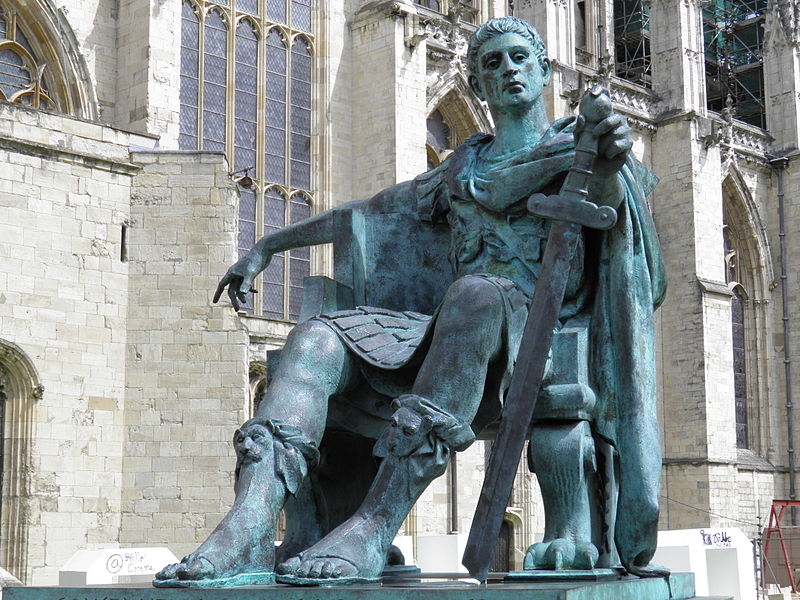Opinion: In Hoc Signo Vinces
“In this sign you will conquer.”
 (Constantine the Great Statue in York, file photo)
(Constantine the Great Statue in York, file photo)
By Scott Moore, Columnist
On the 27th of October, A.D. 312, the man who would become Emperor Constantine the Great was just one of the many who aspired to reunite the shattered Roman Empire under a single ruler. Roman history is littered with the obscure usurpers and claimants who slowly tore the Empire apart through the centuries of its long decline. Thus far in his life, there was little to distinguish Constantine from any of them; born to a soldier who had risen through the ranks and a former prostitute, Constantine was proclaimed Emperor on the site of the present York Minster Cathedral by the army under his command.
Constantine and his army prepared to do battle with Maxentius, his rival for control of the Western Empire and a devoted follower of the traditional Roman pantheon. Maxentius’s army outnumbered Constantine’s, and he had Rome. There is considerable debate over just what happened to Constantine that day as he readied himself to take Rome or die trying. The historian Eusebius claims that Constantine himself explained that he had looked to the sky and seen, shining brightly as the sun, an enormous cross and the words “in this sign you shall conquer”. After a similarly instructive dream that night, Constantine woke and promptly ordered that the sign of the Chi Rho be painted on the shields of his army. In Rome, meanwhile, Maxentius was receiving omens of his own. The famous Sibylline Books, consulted in times of great crisis, claimed that if battle were joined the following day the enemy of the Romans would be destroyed.
As is typical in these stories, the overeager Maxentius ignored the ambiguity of the prophecy and marched to face Constantine in open combat. The two armies met at the Milvian Bridge, where Constantine quickly gained the upper hand. Maxentius and his army, including the infamous Praetorian Guard, fought fiercely but gradually found themselves pushed back against the Tiber. As retreat became rout the entire army attempted to flee across the bridge, their only hope of escape. Under the weight of thousands of panicking men and horses, however, the bridge collapsed. Maxentius and his army were thrown into the river and drowned. Constantine entered Rome in triumph the following day to the acclamations of the people; both prophecies had come true.
While he would only be formally baptized on his deathbed, Constantine, with the support of his mother St. Helena, embraced the faith to which he credited his victory. Gladiator combat and crucifixion would be outlawed and the Nicene Creed adopted under his rule. One of his first major actions after victory at the Milvian Bridge, The Edict of Milan, proclaimed a universal policy of religious freedom. Much of the cynicism directed at the Emperor-Saint by modern reevaluations has gone too far in the opinion of this writer. While he was certainly impulsive and quick to anger, and his later years would be overshadowed by some truly terrible decisions (the filicide is its own story), his life and legacy ought to earn the man our respect and remembrance on this anniversary of his vision and victory.
